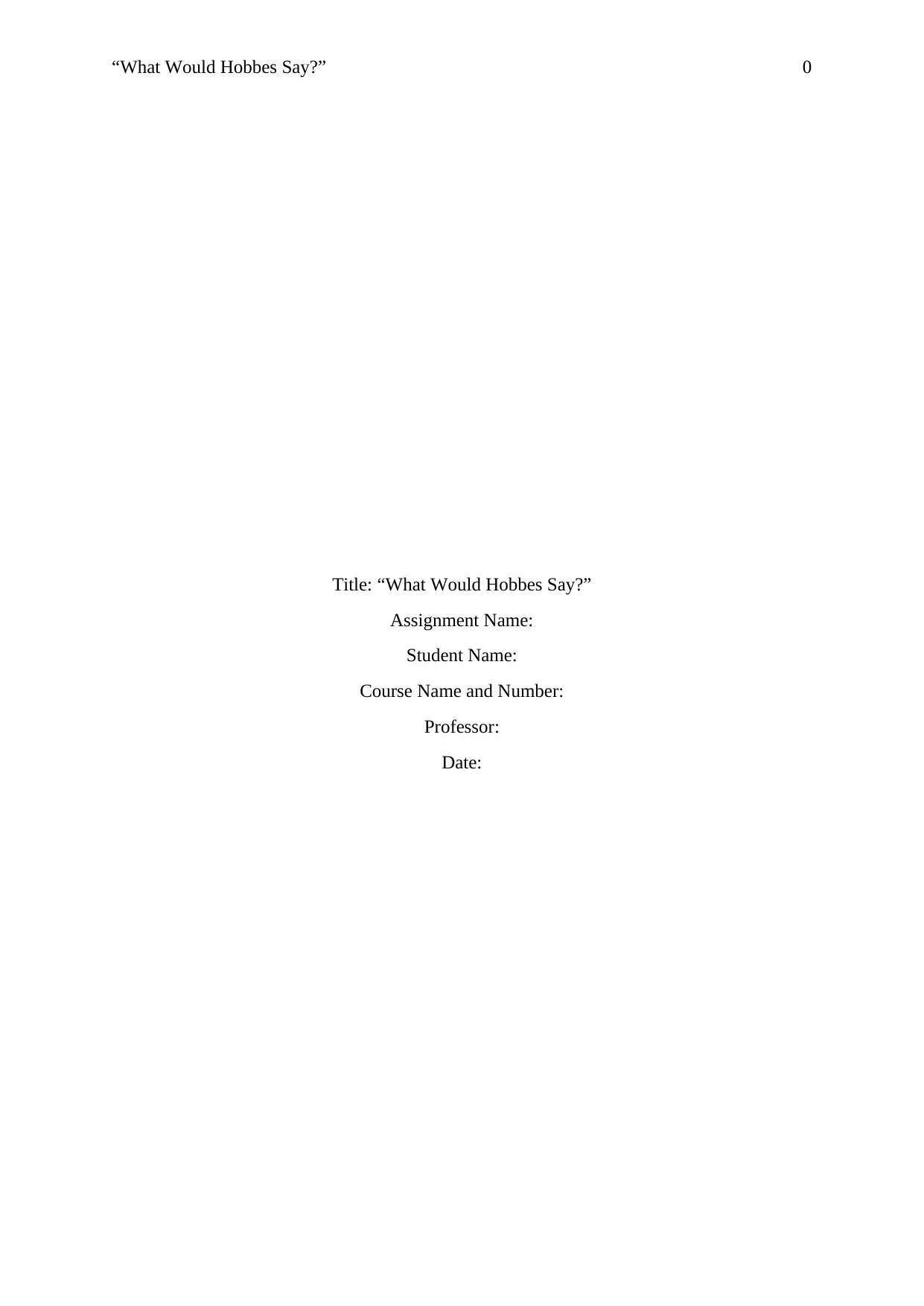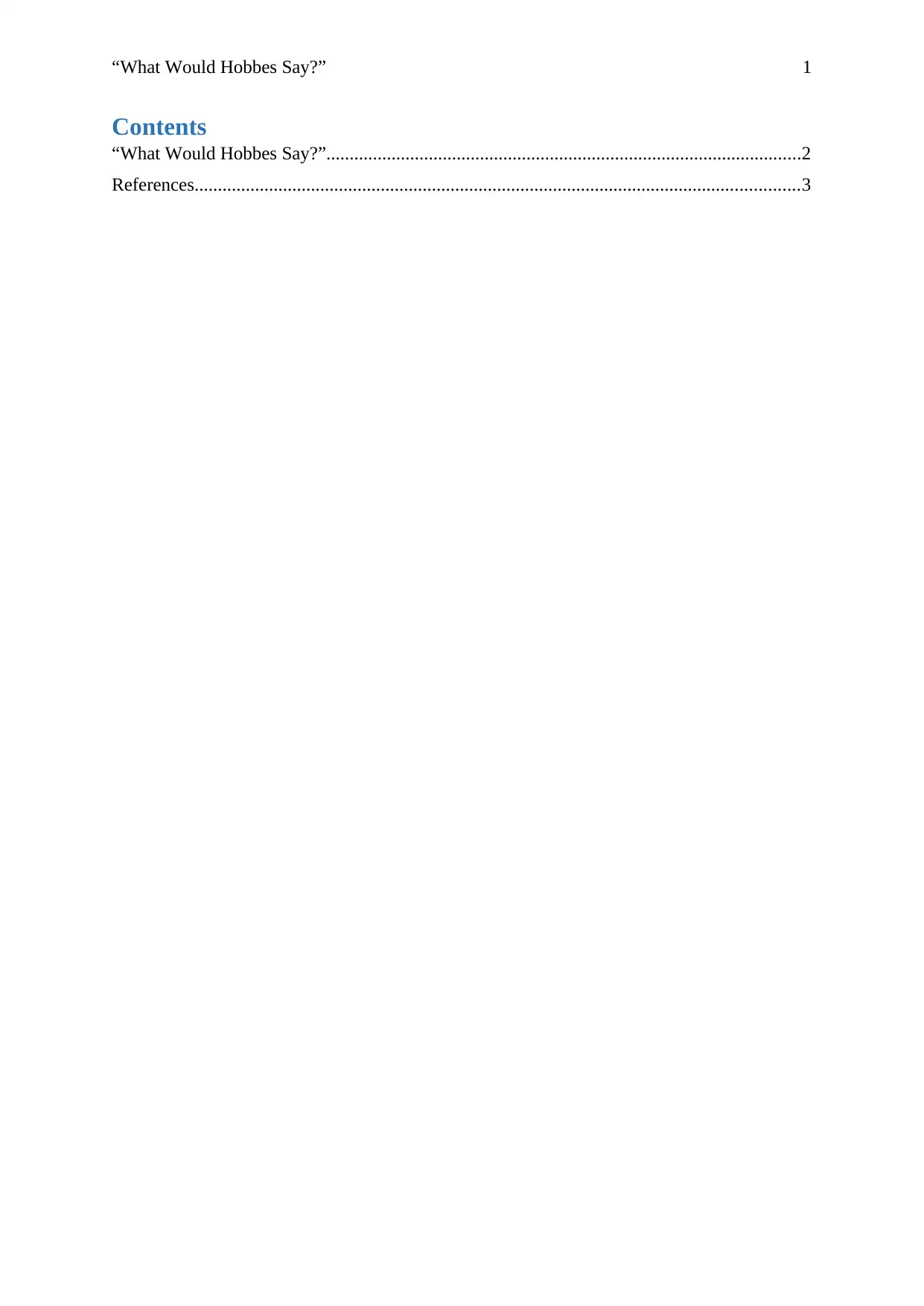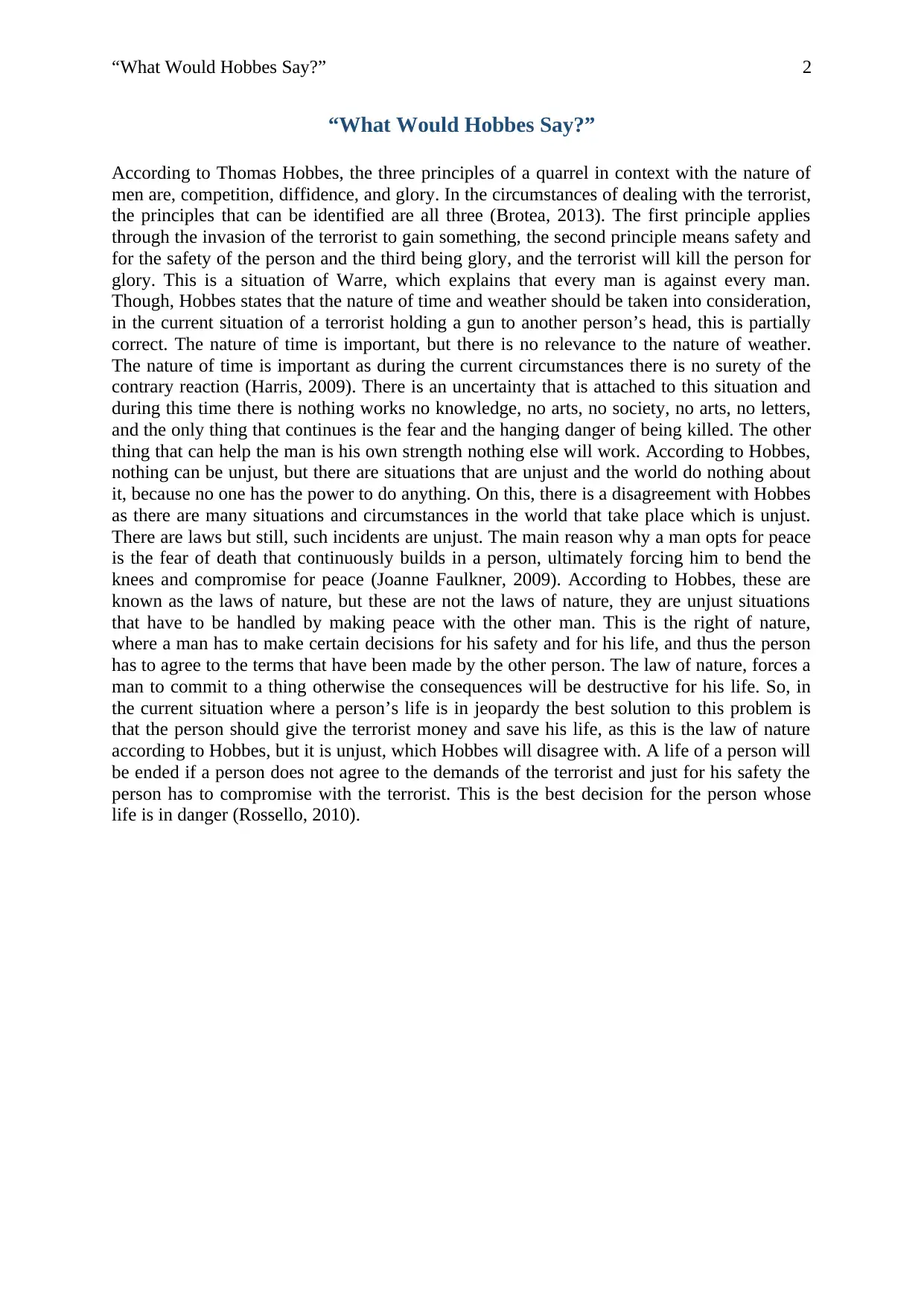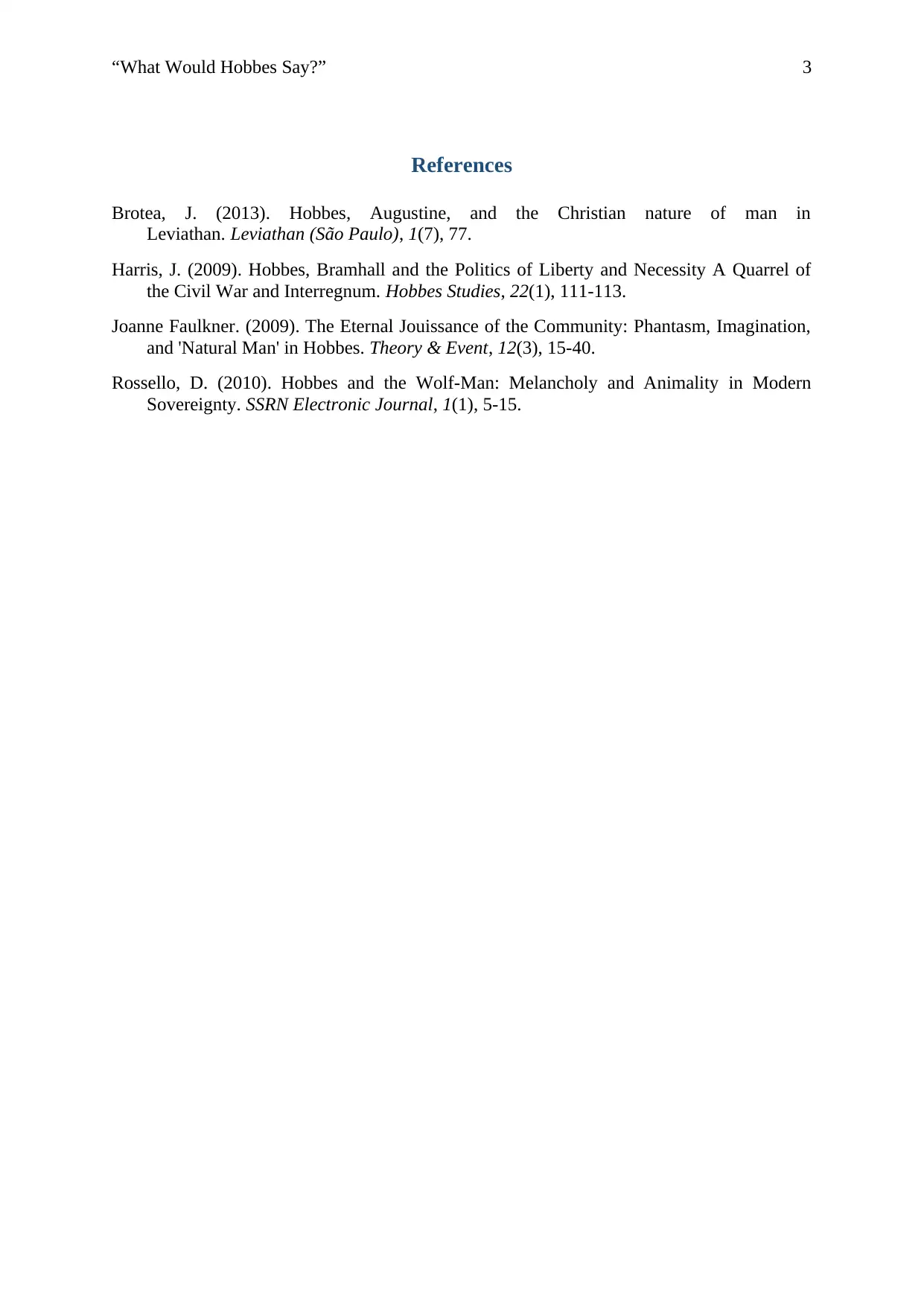What Would Hobbes Say? - Analysis of Hobbesian Principles in Dealing with Terrorism
VerifiedAdded on 2023/05/30
|4
|796
|414
AI Summary
This article analyzes the principles of Thomas Hobbes in dealing with terrorism and the unjust situations that arise. It also discusses the laws of nature and the right of nature in such circumstances.
Contribute Materials
Your contribution can guide someone’s learning journey. Share your
documents today.
1 out of 4
![[object Object]](/_next/static/media/star-bottom.7253800d.svg)









